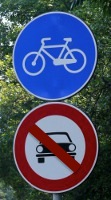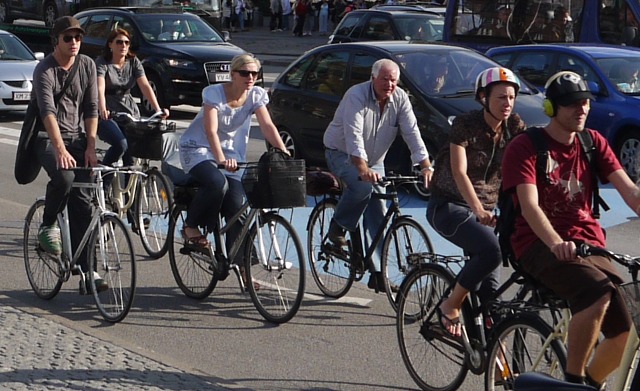In praise of the bicycle

The bicycle is, on closer scrutiny, the ideal means of ground transportation:
- it is the most economical.
- it is the most ecological.
- it is the most energy-efficient.
- it is the most healthful.
- it is the most quiet.
- it is the least obtrusive.

Why then is the bicycle constantly forced to defer to the motorized hordes?
The fact is that today there still is a dominant culture, antithetical to the bicycle: one of exhibitionism and ostentation, of luxury and of supreme laziness, in a word, the dictatorship of the automobile and therefore ...
-
an economic means of transport is despised because it is seen as a symbol of poverty, not an object of luxury to flaunt.
-
an economic means of transport is despised because, paradoxically, it does not move the many economic interests of expensive and wasteful means of transport, such as cars and motorcycles.
-
an environmentally-friendly means of transport is despised and derided; a genuine concern with environmental problems is at a minimum while the environment is seen primarily as a resource to plunder or as another opportunity to do business.
-
a quiet means of transport is not taken seriously because it is not able to attract the attention of others, whether positive or negative.
-
a healthful means of transport, because it requires some physical exertion, even though beneficial, is derided because the dominant culture today is that of supreme laziness; the majority of automobile drivers (or motorcyclists, it makes little difference) are no longer able to do without their motor vehicle and think and act as if they were disabled, as though confined to a wheel-chair, in other words they are completely gasoline-dependent.
-
a space-saving means of transport has little success because (as above...) it is not highly-visible and does not draw sufficient attention.
Ultimately, since the choice between the bicycle and the automobile represents a philosophy of life, it is worthwhile to remember the 10 disasters of the motor age.